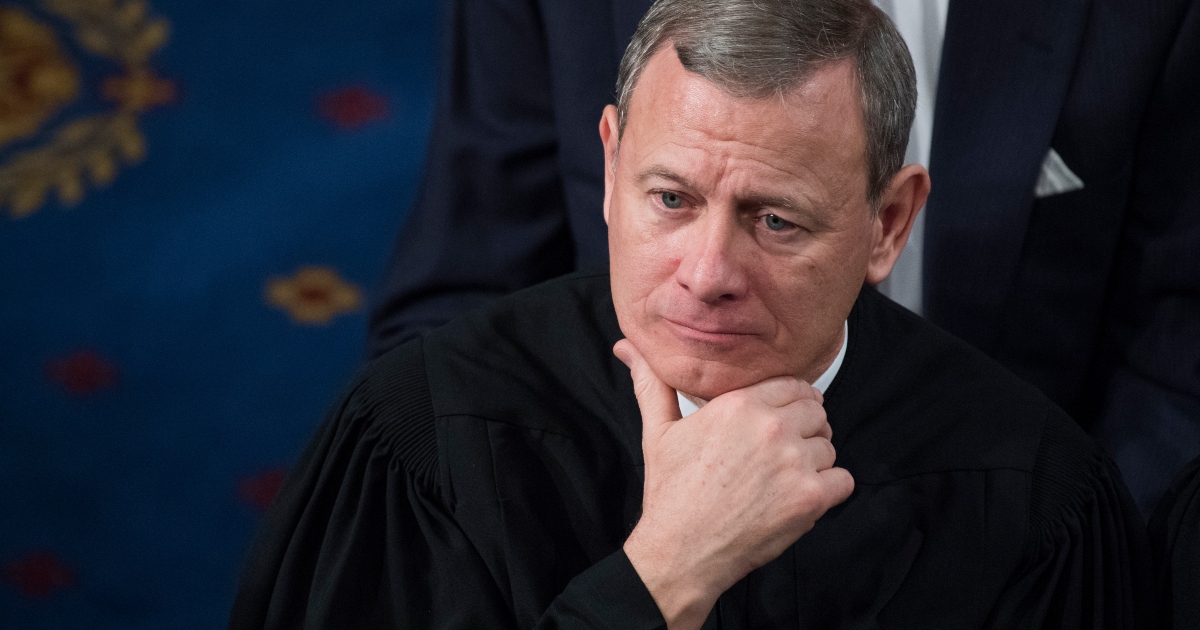OPINION: This article may contain commentary which reflects the author's opinion.
Chief Justice John Roberts used his annual year-end report to push back against what he sees as increasingly “inappropriate political influence” being used in an attempt to sway the Supreme Court to rule certain ways on high-profile cases.
Constitutional scholars will tell you that our founders chose to have federal judges and Supreme Court justices serve lifetime appointments as a way to ensure they could rise above the political fray as administrations and successive congresses changed hands.
But somewhere along the way throughout our history, politicians and presidents discovered that they could permanently influence the country by choosing judges and justices who shared their political and cultural ideologies. The process of nominating judges and justices, thus, became very political.
And today, no matter how much some justices and judges protest that reality, it is still true: Presidents do not nominate jurists who do not share their political views, and the Senate typically does not confirm judges who don’t align with their party’s ideologies.
And as such, now the process has become so overtly political it has alarmed Roberts and other federal court watchers who know that the supposed independence of the Judicial Branch is at risk of becoming a policy enforcement wing of the current party in charge and that threats from outside political forces can serve as a means to ensure a ‘correct’ ruling.
“Decisional independence is essential to due process, promoting impartial decision-making, free from political or other extraneous influence,” Roberts, who serves as head of the entire federal judiciary, noted in his report on the status of SCOTUS and the 107 federal district and appeals courts around the nation.
Roberts noted another area of importance: “The Judiciary’s power to manage its internal affairs insulates courts from inappropriate political influence and is crucial to preserving public trust in its work as a separate and co-equal branch of government.”
Constitutional law professor and expert Jonathan Turley, a self-avowed liberal who nonetheless has more respect for our governing processes than for political outcomes, explained how the high court is being coerced by the left to ‘comply’ with certain desired political outcomes:
We have been discussing the ramped up threats from Democratic leaders that the Court will either vote with the liberal justices on key issues or face “consequences,” including court packing. Recently, Sen. Elizabeth Warren (D., Mass.), a former law professor, became the latest to voice such reckless views.
What Democratic members are demanding is raw court packing to add four members to the Court to give liberals an instant majority — a movement denounced by figures like the late Justice Ruth Bader Ginsburg and Justice Stephen Breyer.
Last year, House Judiciary Committee Chair Jerry Nadler, D-N.Y., Sen. Ed Markey, D-Mass, and others stood in front of the Supreme Court to announce a court packing bill to give liberals a one-justice majority. This follows threats from various Democratic members that conservative justices had better vote with liberal colleagues . . . or else.
Sen. Jeanne Shaheen, D-N.H., recently issued a warning to the Supreme Court: reaffirm Roe v. Wade or face a “revolution.” Sen. Richard Blumenthal previously warned the Supreme Court that, if it continued to issue conservative rulings or “chip away at Roe v Wade,” it would trigger “a seismic movement to reform the Supreme Court. It may not be expanding the Supreme Court, it may be making changes to its jurisdiction, or requiring a certain numbers of votes to strike down certain past precedents.”
Senate Majority Leader Chuck Schumer also declared in front of the Supreme Court “I want to tell you, Gorsuch, I want to tell you, Kavanaugh, you have released the whirlwind, and you will pay the price.”
These are thuggish political threats, nothing more, but the left is known for making them, as Turley noted. Roberts, meanwhile, appears to be trying to sound the alarm. Hopefully, we have enough ethical members of Congress left to heed his warning.
